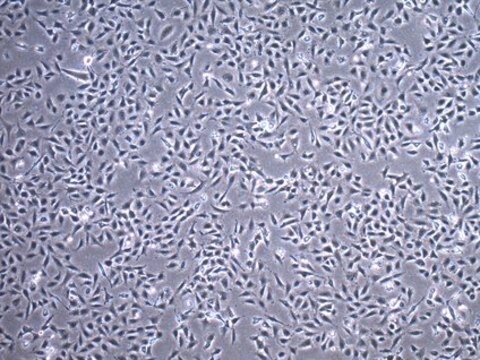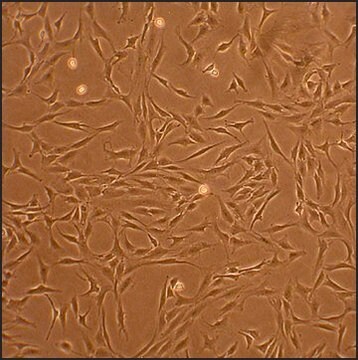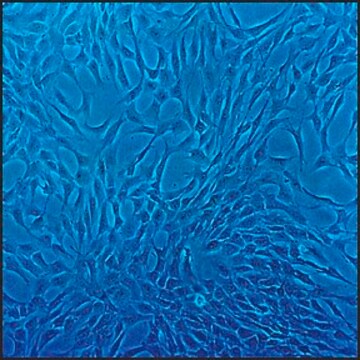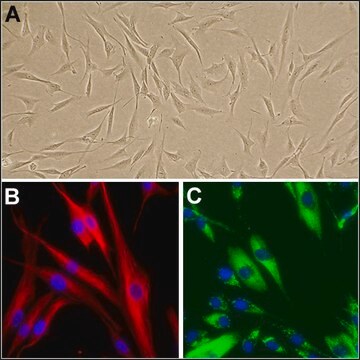SCC043
C28/I2 Human Chondrocyte Cell Line
Human
Synonym(s):
C-28/I2, C28/I2, Human chondrocyte cell line
About This Item
Recommended Products
Product Name
C28/I2 Human Chondrocyte Cell Line, C28/I2 Human Chondrocyte Cell Line is widely used as a model cell line for studying normal and pathological cartilage repair mechanisms related to chondrocyte biology and physiology.
biological source
human
Quality Level
technique(s)
cell culture | mammalian: suitable
shipped in
ambient
General description
C-28/I2 is a clonal line derived from the nonclonal T/C-28a4 cells which were immortalized via retroviral vector-mediated simian virus SV40 Large T antigen (Tag) expression.
Cell Line Description
Application
Quality
• Cells are tested by PCR and are negative for HPV-16, HPV-18, Hepatitis A, B, C and HIV-1 & 2 viruses.
• Cells are negative for mycoplasma contamination.
• Each lot of cells are genotyped by STR analysis to verify the unique identity of the cell line.
Storage and Stability
Other Notes
Disclaimer
Storage Class Code
10 - Combustible liquids
WGK
WGK 3
Flash Point(F)
Not applicable
Flash Point(C)
Not applicable
Certificates of Analysis (COA)
Search for Certificates of Analysis (COA) by entering the products Lot/Batch Number. Lot and Batch Numbers can be found on a product’s label following the words ‘Lot’ or ‘Batch’.
Already Own This Product?
Find documentation for the products that you have recently purchased in the Document Library.
Customers Also Viewed
Our team of scientists has experience in all areas of research including Life Science, Material Science, Chemical Synthesis, Chromatography, Analytical and many others.
Contact Technical Service









